Global Value Chains: Opportunities In Kenya's Agriculture Sector
Background:
Much of Africa’s participation in Global Value Chains (GVCs) is in upstream production, with African firms providing primary inputs to firms in countries further down the value chain. There are various potential advantages of offshoring and engagement in GVCs for the developing world, and for Africa in particular. A potential advantage is that developing countries no longer need to create entire industries to industrialize and be competitive in world markets. Instead, firms in developing countries such as Kenya can provide specific skills or products to GVCs. It is further possible for low-wage countries to produce – or at least produce – high-quality manufactured goods. Through participation in GVCs, and the exposure to international markets and foreign competitors, the potential for technology transfer and spillover effects are achieved.
While potentially offering new and more rapid opportunities to develop, a concern for developing countries that become integrated into GVCs is that such countries become trapped in low value-added segments of the GVC, where there is little possibility for innovation or technology transfer.
With Agriculture being the major contributor to Kenya’s and most African countries’ GDP and the prospects of value addition that could accrue from Agri-processing, disruptive digital technologies are increasing productivity, and access to services and markets in the agricultural sector. Firms are leveraging data infrastructure, remote sensing and mapping technologies, precision agriculture tools, and computing power to enable data-driven decision-making.
Africa has organized itself in various regional economic groupings such as the EAC, ECOWAS, COMESA, CEMAC and the focus is on integrating the 54 African countries into the ACFTA creating prospects of a larger African market. Countries such as Kenya are pursuing African Growth and Opportunity Act (AGOA) benefits post 2025 in the USA Kenya Strategic Trade and Investment Partnership and entrenchment in the European Union, Arab and Asian food, and agriculture exports markets.
African countries have continued to attract Foreign Direct Investment with the expectations for tech and knowledge transfer. A greater part of this knowledge is tacit in nature and thus a greater number of African Small and Medium Enterprises can learn by being integrated into the value chains of larger multinational corporations. The question then remains. how should the local SMEs be organized to achieve more benefits in learning and integrating themselves into the supply chains of Global multinational Corporations?
Conference Objectives:
At United States International University-Africa, we aim at graduating adaptable and global minded, industry ready problem solvers with hands on technology and innovation skills to create new business models that respond to the peculiarity of Africa and emerging economies. We believe our students will be global problem solvers that will create unique and indigenous solutions that will integrate the African economy to the Global Value Chains. It is imperative we thus continually explore opportunities presented in the entire agriculture value chain.
The objectives of this mini conference will be to understand the nature of Global Value Chains and to explore the need for Kenya to integrate into Global Value Chains; to showcase the World Bank supported One Million Farmers Project (OMFP) and its prospects for Technology Transfer and integration into GVCs; understand precision farming interventions and opportunities they present towards Global Supply Chains; as a nation we will need to explore possible strategies towards GVC integration and finally as a university identify training pathways that would FastTrack Kenya’s integration to GVCs.
Registration Details:
Please register for free through this link: https://tinyurl.com/GVCwebinar
When: Thursday, March 23, 2022
Time: 1.30pm to 3.30pm (East Africa Time)
Topic: Global Value Chains - Opportunities in Kenya's Agriculture Sector Conference & Webinar
Let’s keep the conversation going on Twitter, LinkedIn & Facebook
____________________________________________________________
Our Keynote Speaker
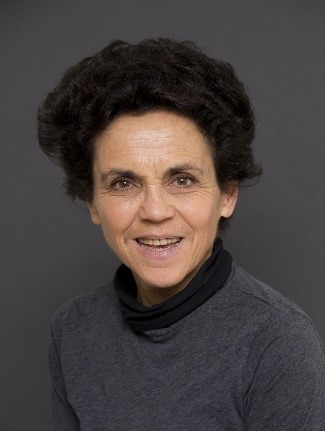 | Lilac Nachum is a Professor of International Business at City University New York and a Visiting Professor at Strathmore Business School. She is a Fellow of the Academy of International Business (AIB) and was a Fullbring Scholar in Kenya during 2021-2022. Her main areas of interest are global supply chains and the study of firms' internationalization in a global world. Recently she has been studying these issues with special focus on African firms. She has consulted with UNCTAD, UNIDO, the European Union, the Gover nments of Turkey and the UAE, the US Department of Commerce, and Deloitte Tumatsu, and served as an Expert Witness on a number of legal cases related to cross-border issues. Nachum has held visiting positions in business schools around the world and has been cited by various media outlets on issues related to globalization and global companies, including CNBC, FOX Business, CNN, Forbes, FT, Business Insider Africa, The Conversation Africa, India Economic Times, among others. Nachum is the author of three books on global companies and global value chains (one of which was translated to Chinese) and numerous journal papers published in leading journals in international business and management. She served in various capacities on editorial boards of a number of these journals. |
| Prof. Lilac Nachum - City University New York, Visiting Professor at Strathmore Business School. |
Panel Discussions
 | Organizer and Moderator Beatrice Matiri-Maisori is a holder of PhD in International Business from University of International Business and Economics, Beijing (China), MBA (University of Nairobi) and Bachelor of Commerce (Kenyatta University - Kenya). Beatrice brings forth more than 20 years’ experience in international business and trade, entrepreneurship and innovation, sustainability initiatives, market entry, business development and global value chains across Asia Pacific, Europe, Africa and Middle East regions. She is a practicing business executive and entrepreneurship and Innovation coach, a Markets Entry and International Business Development Consultant and an accomplished professor of Entrepreneurship and International Business. Beatrice’s research interests are in Chinese Foreign Direct Investments in Africa, International Business strategy, growing Global Value Chains, Entrepreneurship and building Sustainability. She has special interests in Mobile Tech, Renewable Energy, Health and pharmaceutical, Agri-procesing, Blue Economy and Business Tourism industries. |
| Dr. Beatrice Matiri-Maisori |
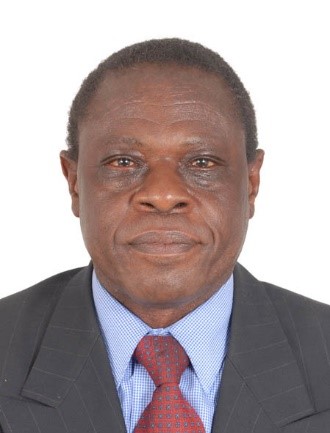 | Panelist - What training would fast track Kenya’s integration to GVCs? Francis Wambalaba is a development economist, with a strong interdisciplinary background, and previously served as Associate Deputy Vice Chancellor of Academic Affairs - Research (2007-2017) at USIU-Africa. With funding from the Bill and Melinda Gates foundation, he founded the Global Agribusiness Management and Entrepreneurship (GAME) Center where he carries his research. With funding from the Canadian International Development Research Center (IDRC); the Australian Centre for International Agricultural (ACIA), together with Prof. Paul Wachana, they created the GAME Center Agribusiness Living Lab, which uses the Agripreneur’s site as a lab for testing potential Agribusiness intervention concepts in their “Action Research” agenda, and currently spearheading the establishment of an Agribusiness degree program in the Chandaria School of Business at USIU-Africa. |
| Prof. Francis Wambalaba - Professor of Development Economist, USIU-Africa | |
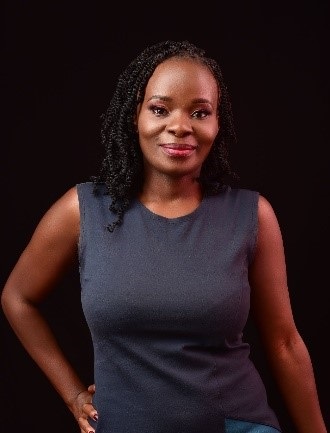 | Panelist - The World Bank supported One Million Farmers Platform (OMFP): Prospects for Technology Transfer and GVCs. Beryl Agengo is Digital Agriculture Specialist at the World Bank. She coordinates the One Million Farmers Platform (OMFP) that sees disruptive agriculture technologies improve agricultural systems through improved productivity, access to markets, financial inclusion, and data analytics. She works closely with both County governments and private sector to encourage adoption of digital solutions. Before joining the World Bank, Ms. Agengo worked at the Africa Business Group and AGRA. She is passionate about Africa, entrepreneurship, startups, youth, and women. She enjoys reading and traveling on her spare time. |
| Ms. Beryl Agengo - Digital Agriculture Specialist, The World Bank, Kenya | |
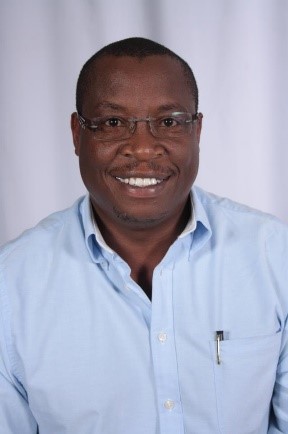 | Panelist - Precision farming and opportunities in Global Supply Chains Geoffrey M. Macharia, is a dynamic and results oriented corporate strategist with immense wealth of experience in research and academia, business development as well as computer engineering. He has a PhD in Computer Science from the University of York and Bachelor of Science Electrical Engineering from the University of Nairobi. He began his career in teaching and research at UoN and USIU-Africa, and ICT leadership at Kenya Revenue Authority before transitioning to the corporate world where he has worked with leading multinationals such as SAP and Oracle. He now leads Scarab Solutions, a global industrial practitioner in leveraging data and analytics in crop management to maximize crop yield and improve efficiency. |
| Dr. Geoffrey Macharia, Managing Director, Scarab Solutions | |
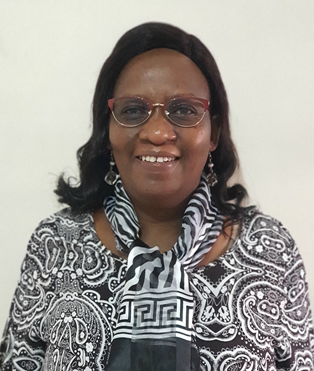 | Panelist - What Strategic choices would you recommend for Kenya and local firms? Veronicah Kaluyu is a seasoned scholar in the area of Strategy and Management driven by desire for quality and excellence in business practice and research. She has experience in Business management in both public and private sectors. Particularly she has a bias in development of strategy in value addition aimed at creating competitive edge for various business sectors. Currently she is involved in creation of Agribusiness Value Chain strategy as a business development service for farmers in Africa continent, aimed at tapping into benefits of Global supply chain networks. As a professor, she maintains a bias in student mentorship and empowerment with professional and research skills. She is widely published in local and international journals. |
| Dr. Veronicah Kaluyu - Professor of Strategy and Management, USIU-Africa |
